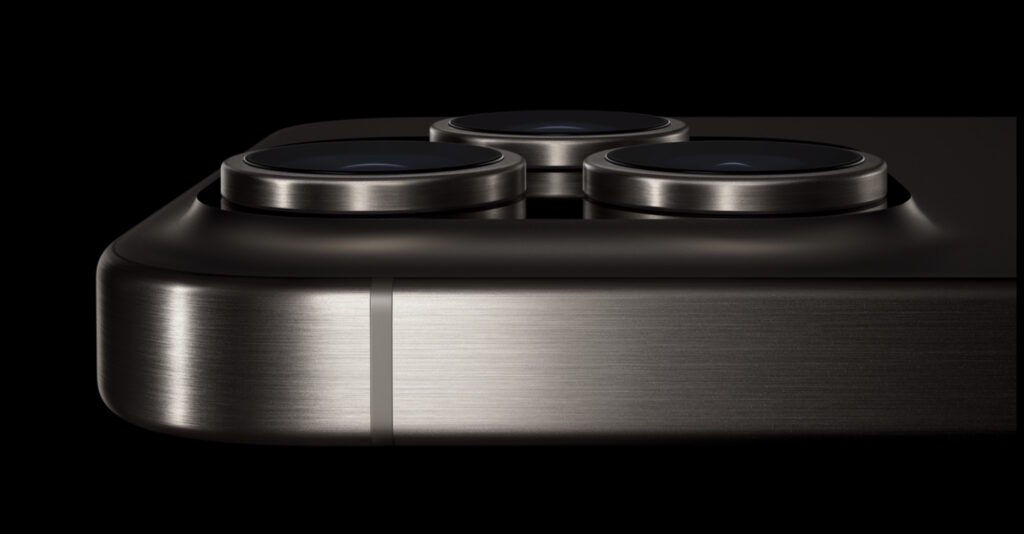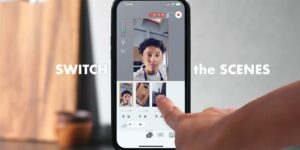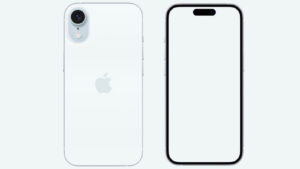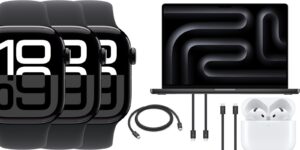Which iPhone has the best camera?

Every year without fail, the new iPhone delivers one of the best cameras on any smartphone. Basically, any iPhone you buy—even the previous year’s model—will snap excellent photos and record videos in stellar quality.
It’s that consistency, along with the popularity of Macs among photo and video professionals, that makes the iPhone so popular among photographers and videographers. Whether you’re a pro or just an enthusiast, the iPhone that is best for photography is almost always the newest one—but that also tends to be the most expensive option, so is that the model you should buy?
While the top of the range iPhone 16 Pro and iPhone 16 Pro Max both offer advanced cameras and impressive technologies that will result in professional-looking photographs, the other iPhones still take excellent photos and are worthy of consideration.
We will run through the current iPhones that Apple is selling now, along with some iPhones from the past few years. This way we can advise on the best iPhone for photography that fits within your budget.
You may also like to read our iPhone buying guide and our iPhone comparison.
How the iPhone cameras compare
Every year, with each new iPhone, Apple improves the camera and video features of its iPhones. We’ll begin with an overview of the camera specs for the current iPhone models, before going on to look at the camera features that Apple has introduced over the years.
With the iPhone 16 line, the iPhone 16 Pro and Pro Max have the same camera hardware, while the Pro models had different telephoto cameras last year. The Pro models differentiate themselves from the non-Pro models with the telephoto camera (as usual) and a sharper 48 megapixel ultra-wide camera.
iPhoneMain cameraUltra WideTelephotoOptical ZoomiPhone 16 Pro/Max48MP, f/1.7848MP, f/2.212MP, f/2.80.5, 1, 2, 5xiPhone 1648MP, f/1.7812MP, f/2.20.5, 1, 2xiPhone 15 Pro Max48MP, f/1.7812MP, f/2.212MP f/2.80.5, 1, 2, 5xiPhone 15 Pro48MP, f/1.7812MP, f/2.212MP f/2.8 0.5, 1, 2, 3xiPhone 15 Plus48MP, f/1.612MP, f/2.40.5, 1, 2xiPhone 1548MP, f/1.612MP, f/2.40.5, 1, 2xiPhone 14 Pro Max48MP, ƒ/1.7812MP, ƒ/2.212MP, ƒ/2.80.5, 1, 2, 3xiPhone 14 Pro48MP, ƒ/1.7812MP, ƒ/2.212MP, ƒ/2.80.5, 1, 2, 3xiPhone 14 Plus12MP, ƒ/1.512MP, ƒ/2.4
0.5, 1xiPhone 14 12MP, ƒ/1.512MP, ƒ/2.4
0.5, 1xiPhone SE12MP, ƒ/1.8
0.5, 1xRecent handsets that are no longer sold by Apple are shown in italics, you may still be able to buy one of these models.
Looking at the specs sheet you wouldn’t think the iPhone 16 offered an improvement over the iPhone 15, but its Ultra Wide camera supports macro photography, which is very popular. The cameras can now shoot spatial photos and video, too.
“Hidden Gem” (water bead in leaf) by Jirasak Panpiansin (@joez19). Macro photograph, shot on iPhone 13 Pro Max.
Apple
The apertures are also a significant variation across iPhones, changing practically every generation as Apple tries to design an iPhone capable of even better low-light photography. An ƒ/1.6 aperture on the iPhone 15 will take in more light than the ƒ/1.8 aperture on the iPhone SE, for example. You may therefore be wondering if the ƒ/1.6 aperture would match the ƒ/1.5 aperture in the iPhone 14, but the aperture is only part of the story. In each generation, Apple also improves the camera sensor, image pipeline, and processing software. The iPhone 14 Pro gained a quad-pixel sensor that combines every four pixels into one large quad-pixel equivalent to 2.44 µm, and this is retained in more recent iPhones.
Another benefit of the newer iPhone cameras is second-generation sensor-shift optical image stabilization, which was a new feature of the iPhone 14 Pro and Pro Max, and is now only available in the iPhone 15 Pro and Pro Max. This enhances the sensor-shift optical image stabilization found on the iPhone 15, 14 and the 13-series.
The 5x zoom introduced in the iPhone 15 Pro Max make a huge difference in telephoto shots, and it is retained in both the iPhone 16 Pro and Pro Max.
How the zooms compare: iPhone 14 Pro Max vs. iPhone 15 Pro Max
Simon Lohmann
However, if you don’t require a telephoto lens and you aren’t interested in macro photography, there are good options for photography fans among Apple’s less expensive iPhones.
What features do iPhone cameras have?
All iPhones are capable of taking good photographs thanks to Apple’s innovations in photography software and the processing that runs in the background. The Photonic Engine (which arrived with the iPhone 14 range) is a computational photography technology that can make low-light photos look better, among other things.
The Photonic Engine builds on the Deep Fusion software, which arrived with the iPhone 11. The Deep Fusion process involves the camera taking multiple shots with different exposures and combining them using AI to produce better images that the tiny sensors in a smartphone would otherwise be capable of.
Photographic Styles arrived with the iPhone 13 and also features on the iPhone SE (3rd generation). These are preset styles that are applied when you take a photograph, rather than adding a filter after the photo is taken. The benefit is that adjustments are applied to the right elements of an image—maintaining skin tones, etc—rather than to the whole image. The five presets are Standard, Rich Contrast, Vibrant, Warm and Cool and you can adjust Tone and Warmth for each. If you find a Photographic Styles you are happy with you can set it so your iPhone always uses it, saving you editing time later. You can of course edit your photos later using the filters in the Photos app.
New to the iPhone 16 line are second-generation Photographic Styles, which offer greater control over color and tone mapping with an easier interface. They can also be applied non-destructively after the shot is taken, and even changed, while the first Photographic Styles had to be applied as you took the photo. It’s a really big deal—proper application of the new Photographic Styles can allow you to produce iPhone shots let look a little more natural, contrast-y, and less over-saturated.
Jim Martin / Foundry
With every generation, Apple seeks to improve low-light photography. This is no more apparent than in the automatic Night Mode settings that arrived in the iPhone 11 and have improved over the generations since. A Night Mode Portrait setting arrived with the iPhone 12 Pro and iPhone 12 Pro Max, and is available in all Pro models since.
Speaking of portraits, Portrait Mode is available in iPhone SE (2nd generation) and later, iPhone X and later, and the iPhone 7 Plus and iPhone 8 Plus. There is also a Portrait Lighting feature in the iPhone X and 8 Plus and later that allows you to select one of five effects to ‘light’ your portrait. You can adjust the depth of field for these portraits to create more or less background blur. Since the iPhone 15, you have been able to take regular shots and apply the portrait effect later if you wish, as they record depth information as well.
The Portrait Mode also inspires Cinematic Mode for making videos on the iPhone. With this setting the camera can record video with a shallow depth of field, so that there is more focus on the subject. Cinematic Mode is available on the the iPhone 13-series and later.
Another video mode that arrived recently is Action Mode. A features of the iPhone 14-series, Action Mode lets you capture smooth video when you’re moving.
Smart HDR has been around since the iPhone XS and XR in 2018, but with the 15 generation iPhone it’s now at Smart HDR 5.
Those are some of the standout features that have arrived in recent years, but there is so much more. For example, Live Photos let you take 3 second captures with each picture so you can pick the still image you want, create a Gif-like effect, or just keep the short clip. You can make a QuickTake video by holding the shutter button on the iPhone XS, iPhone XR, and later. And, of course, every iPhone can shoot time-laps and slo-mo videos as well as square, Portrait, and pano photographs.
Are iPhones good for video?
All iPhones currently sold offer 4K video recording at 24 fps, 25 fps, 30 fps or 60 fps, 1080p HD video recording at 25 fps, 30 fps or 60 fps and Slo-mo video support for 1080p at 120 fps or 240 fps. New to the iPhone 16 Pro and Pro Max is 4K Dolby Vision video at up to 120fps.
The differences relate to features like Cinematic mode on the iPhone 13 and 14-series (but on only in 4K HDR on the iPhone 14-series and up), ProRes and Macro video recording (only available on the Pro and Max iPhones, and HDR video recording, which is not available on the iPhone SE.
The video recording features of the iPhone 16 Pro and Pro Max are superior to the previous generation, with the addition of Log video recording and the Academy Color Encoding System. ProRes video recording up to 4K at 120 fps with external recording equipment for these models too.
An omission on the iPhone SE is Audio Zoom, which can help reduce background noise when recording and is present on iPhones 11 and later.
Features like Action Mode and Cinematic mode, mentioned above will no doubt prove useful to anyone making video with their iPhone.
Best iPhone Camera
1. Apple iPhone 16 Pro
Price When Reviewed:
$999
The iPhone 16 Pro and Pro Max have identical camera systems this year. They improve upon the iPhone 15 Pro Max with an upgraded 48 megapixel ultra wide camera, but the real improvements come from the addition of a new Camera Control button and improved software. The second-generation Photographic Styles are a big improvement over the previous version of the feature, giving you more creative control over how your photos and videos look.
The Camera Control button can open your camera app (even third-party apps), acts like a shutter button, and can be tapped and swiped to adjust image controls like exposure or zoom.
If you’re into video, you’ll appreciate the improved microphones, higher 120fps 4K frame rate, and AI-powered audio mix feature that lets you quickly produce videos that sound great.
Read our full
Apple iPhone 16 Pro review
2. Apple iPhone 16
Price When Reviewed:
$799
Even better than the older Pro models is this year’s regular iPhone 16.
Sure, it lacks a dedicated telephoto camera and it doesn’t shoot in ProRES video, but it can zoom in to a 2x optical image using the main camera’s 48 megapixel sensor. It supports the new Photographic Styles, has the Camera Control button, and now takes macro photos and video and Spatial video too.
Between the Camera Control button, features like Audio Mix, and the new photographic styles, we’d take the regular iPhone 16 over the iPhone 15 Pro.
Read our full
Apple iPhone 16 review
3. Apple iPhone 15 Pro Max
Price When Reviewed:
Was $1,199 (Discontinued)
The iPhone 15 Pro Max model is much more than a big iPhone 15 Pro thanks to new camera tech including a 5X zoom on the telephoto camera. This is a big increase over the 3x/77mm telephoto camera on the iPhone 15 Pro. The digital zoom also increases from 15X to 25X.
The new ultra-wide camera, in both of the pro iPhone 15 models, gains a new anti-glare lens coating and better night mode quality.
You also get ProRes and Log color video recording plus the ability to shoot ProRAW photos.
Read our full
Apple iPhone 15 Pro Max review
4. Apple iPhone 15
Price When Reviewed:
From $699 (Was $799)
If you don’t need all the bells and whistles of the iPhone 15 Pro Max and the iPhone 15 Pro still sounds a little bit expensive to you, the iPhone 15 is still a great option if you are looking for a good iPhone for photography.
iPhone 15 has a dual-camera array with a wide-angle and ultra-wide camera, but Apple has upped the main camera’s megapixels from 12 to 48 with a quad-pixel sensor and 100 percent Focus Pixels for fast autofocus. Shots are saved in 24MP by default so it shouldn’t fill up all your memory.
The iPhone 15 can take 2X telephoto shots despite not having a dedicated telephoto lens.
Read our full
Apple iPhone 15 review
Further reading:
iPhone camera tips to take better photos
How to disable the camera shutter sound on an iPhone or iPad




